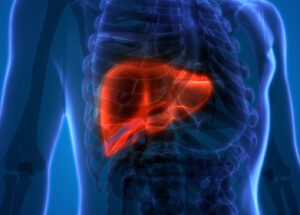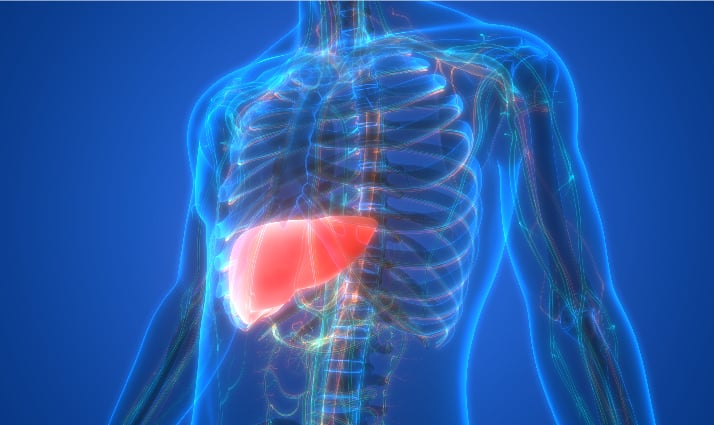Autoimmune Disease: Causes, Symptoms, and Treatment
April 24, 2025

When your body’s immune system attacks your body mistakenly, the condition is said to be an autoimmune disease. Normally, the immune system protects the body against viruses, bacteria, and germs. When the immune system senses that these foreign bodies are invading the body, it sends out cells to attack and destroy them.
In normal circumstances, the immune system can differentiate between the body’s cells and foreign ones. But in an autoimmune disease, the immune system sees a part of your body as foreign and releases autoantibodies or proteins that attack the body’s healthy cells.
Autoimmune disease can affect any part of the body. For instance, autoimmune hepatitis can affect the liver. This is the inflammation of the liver that sets in when the immune system works against liver cells. If left untreated, autoimmune disease can damage the liver and cause cirrhosis and, ultimately, liver failure.
Types
Autoimmune diseases represent a wide spectrum of conditions where the immune system mistakenly attacks the body’s own cells, tissues, or organs. With over 100 known types, these disorders can affect nearly any part of the body, from the joints and skin to internal organs and nervous systems. While each condition has its own specific characteristics, they all stem from a core issue: the body’s inability to differentiate between self and non-self.
Below is an overview of some common categories of autoimmune diseases based on the area of the body they impact:
1. Joint and Musculoskeletal Autoimmune Disorders
These types target the joints, muscles, and connective tissues, leading to chronic inflammation and pain:
- Rheumatoid Arthritis (RA): The immune system attacks joint linings, resulting in swelling, stiffness, and potential joint damage.
- Lupus: Affects joints and multiple internal systems like the lungs and kidneys.
- Psoriatic Arthritis: Linked with psoriasis, this form of arthritis involves joint inflammation along with skin symptoms.
- Myositis: Involves muscle inflammation, causing weakness and mobility issues.
2. Skin and Gland-Related Autoimmune Diseases
These conditions often manifest through visible skin changes or affect moisture-producing glands:
- Psoriasis: Causes rapid buildup of skin cells, leading to scaly, inflamed patches.
- Sjögren’s Syndrome: Attacks glands that produce saliva and tears, causing dry mouth and eyes.
- Scleroderma: Results in excessive collagen production, hardening of the skin, and affects internal organs.
- Vitiligo leads to the loss of skin pigment due to immune damage to melanocytes.
3. Digestive System Autoimmune Conditions
The digestive tract is particularly vulnerable to immune dysregulation:
- Celiac Disease: Triggered by gluten, it causes immune-mediated damage to the small intestine lining.
- Crohn’s Disease: Can affect any part of the GI tract with deep tissue inflammation.
- Ulcerative Colitis: Involves continuous inflammation of the colon and rectum.
- Autoimmune Gastritis: Damages the stomach lining and can impair nutrient absorption.
4. Endocrine System Disorders
These diseases interfere with hormone-producing glands:
- Type 1 Diabetes: Immune cells destroy insulin-producing pancreatic cells, disrupting blood sugar regulation.
- Graves’ Disease: Causes overactivity of the thyroid (hyperthyroidism), accelerating body functions.
- Hashimoto’s Thyroiditis: Leads to underactive thyroid (hypothyroidism) through gradual gland destruction.
- Addison’s Disease: Targets the adrenal glands, affecting hormone levels crucial for stress response and metabolism.
5. Nervous System Autoimmune Diseases
These conditions disrupt nerve function and communication:
- Multiple Sclerosis (MS): Damages the myelin sheath protecting nerve fibers, affecting mobility and coordination.
- Myasthenia Gravis: Weakens muscles by interrupting nerve signals.
- Guillain-Barré Syndrome (GBS): Rapid-onset muscle weakness caused by an immune attack on the peripheral nerves.
- Chronic Inflammatory Demyelinating Polyneuropathy (CIDP): A longer-lasting version of GBS, leading to persistent nerve damage if untreated.
6. Blood and Circulatory System Autoimmune Diseases
These affect blood vessels and the production of essential blood components:
- Vasculitis: Inflammation of blood vessels that can restrict blood flow and damage organs.
- Pernicious Anemia: Immune response disrupts vitamin B12 absorption, leading to reduced red blood cell production.
Each of these conditions presents its own challenges, but early diagnosis and proper treatment can significantly improve quality of life. Recognizing the symptoms and understanding the affected body system is key to managing autoimmune diseases effectively.
Causes
The cause of autoimmune disease is not known, but the theories that cause it to malfunction include the following:
- Drugs
- Bacteria or a virus
- Environmental or chemical irritants
Symptoms
In the early stages of autoimmune disease, the symptoms are:
- Swelling and inflammation
- Fatigue
- Aching muscles
- Lack of focus
- Low fever
- Tingling and numbness in the hands and feet
- Skin rash
- Hair loss
Diagnosis
Your doctor will diagnose autoimmune disease by asking you to undergo an antinuclear antibody test (ANA), followed by Autoantibody tests, a blood exam, C-reactive protein (CRP) to check for inflammation, Erythrocyte sedimentation rate (ESR) to measure the inflammation level, and urine tests.
Treatment
Treating autoimmune disease can only control the hyperactive immune response and reduce the level of inflammation and pain, but not cure it completely. To treat this condition, drugs may be advised, such as nonsteroidal anti-inflammatory drugs (NSAIDs), immunosuppressing drugs, and medication for swelling, skin rash, and fatigue.
By eating a balanced diet and exercising regularly, you can feel better. You can also go in for physical therapy, Hormone replacement, and blood transfusions.
Why Rela Hospital
A hospital dedicated to liver ailments can tell you how far liver disease is in India. Realizing the need to set up a hospital dedicated to serving liver disease patients, Dr Rela instituted the Rela Hospital, Chennai.
Today, after many years of honest and dedicated care for liver patients, it is seen as one of the top liver transplant hospitals in India. With the able support of trained doctors with international exposure and modern technology, the liver disease specialists in Chennai give a new lease of life to patients suffering from liver ailments at their varying stages.
So, it’s not surprising that our years of hard work in this niche area have borne fruit: The fruit of being known as the autoimmune liver disease treatment hospital to go to when in need.












